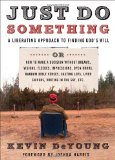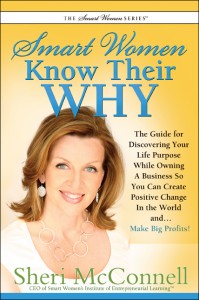I enjoyed my first national SCBWI conference in NYC a couple of weeks ago. It was exhilarating to be in the same room with so many creative people–writers, illustrators, publishers, agents, editors, and other children’s book enthusiasts (Jane Yolen!!!). While there, I was conscious of the fact that just being there conferred an advantage on each hopeful writer or editor in attendance. There’s nothing quite like the synergy of being present, networking in person, and hearing first-hand from others in the field.
I tweeted many of the tidbits I picked up during the conference, but several things have lingered with me. Here are a few of them:
The most memorable thing I brought home: Literary fiction can be commercially successful; some commercial fiction has literary merit. Lines blur… just write. It’s easy to get caught in the web of trends and traditions, and lose sight of what you need to be writing. Don’t look around; look within and write.
Author Jacqueline Woodson read her work with such beauty and passion that I was too caught up to write down much. However, she quoted author Madeleine L’Engle, and that bit of wisdom has stayed with me: “Write for the children we once were, not the children we have. You know only your own internal struggles.”
Illustrator Peter Sis offered a fascinating overview of his career path which stretched from communist Czechoslovakia to a lengthy, successful, and ongoing career in the United States. He vividly conveyed a sense of the danger of being involved in the arts in a repressive regime, and the importance of perseverance.
Agent Sheldon Fogelman emphasized the need for a detailed, prioritized plan if you want to make a career of writing. Establish a goal, then create steps for reaching it. Other tips: read endlessly in your genre; learn about the business aspect of being a writer; be open to suggestions from your editor or agent; and don’t be distracted–this is a business for serious people.
Jim Benton, The Compulsive Creator, shared more than one memorable line, but my favorite was: “Rewrite it; there are no first drafts in the library.” He also discussed the financial advantages to licensing your work. The numbers were impressive!
Prinze winner Libba Bray spoke of the power of the unexpected and the imporatnce of creating characters that are fully human. She emphasized that it’s important to ignore trends and write your own truth. The most memorable line for me was, “First you jump off the cliff, then you build the wings. The leap of faith is the beginning.” I do believe that.
Agent Susan Raab offered a peek into the future– what is selling and what is not. The most encouraging bit of news is that the children’s book market has held up well when compared to the adult market. She offered many other helpful hints, including encouragement to 1) Advocate for yourself; 2) Reach out personally to readers through your website; 3) Look strategically at the whole picture and build an effective platform; 4) Focus on a specific aspect of the market and become an expert; 5) Be proactive in reaching out to the media.
I attended workshops with three different editors, and was once again reminded that publication is a subjective process. As I listened to each editor talk about the ideal book he/she would like to see, I was able to mentally sort the manuscripts I’ve written and match them to an editor’s style and preferences. Market guides and editor listings just can’t compete with the in-person experience.
The final speaker was someone I’ve long admired– Jane Yolen. She spoke eloquently of the joy in storytelling, and shared the Biblical tale of the Pharaoh’s dream of 7 fat and 7 lean cattle as an apt metaphor for the state of the publishing industry. After offering twenty writer rules she has found important, she reminded us that “The working writer writes. Rules are useless without doing the work. Use anything you have– just go home and write!”
I’ve been re-reading Yolen’s outstanding Touch Magic : Fantasy, Faerie, and Folklore in the Literature of Childhood since I got home, and it remains one of the best books I’ve read on the subject. If you’re not familiar with it, be sure to look for it.
: Fantasy, Faerie, and Folklore in the Literature of Childhood since I got home, and it remains one of the best books I’ve read on the subject. If you’re not familiar with it, be sure to look for it.
My final thought on the conference? It’s important to be at events like this. Not only do you reap the practical benefits of rubbing elbows with others who understand what you’re doing, but you will also come away inspired, refreshed, and equipped to meet your goals.



